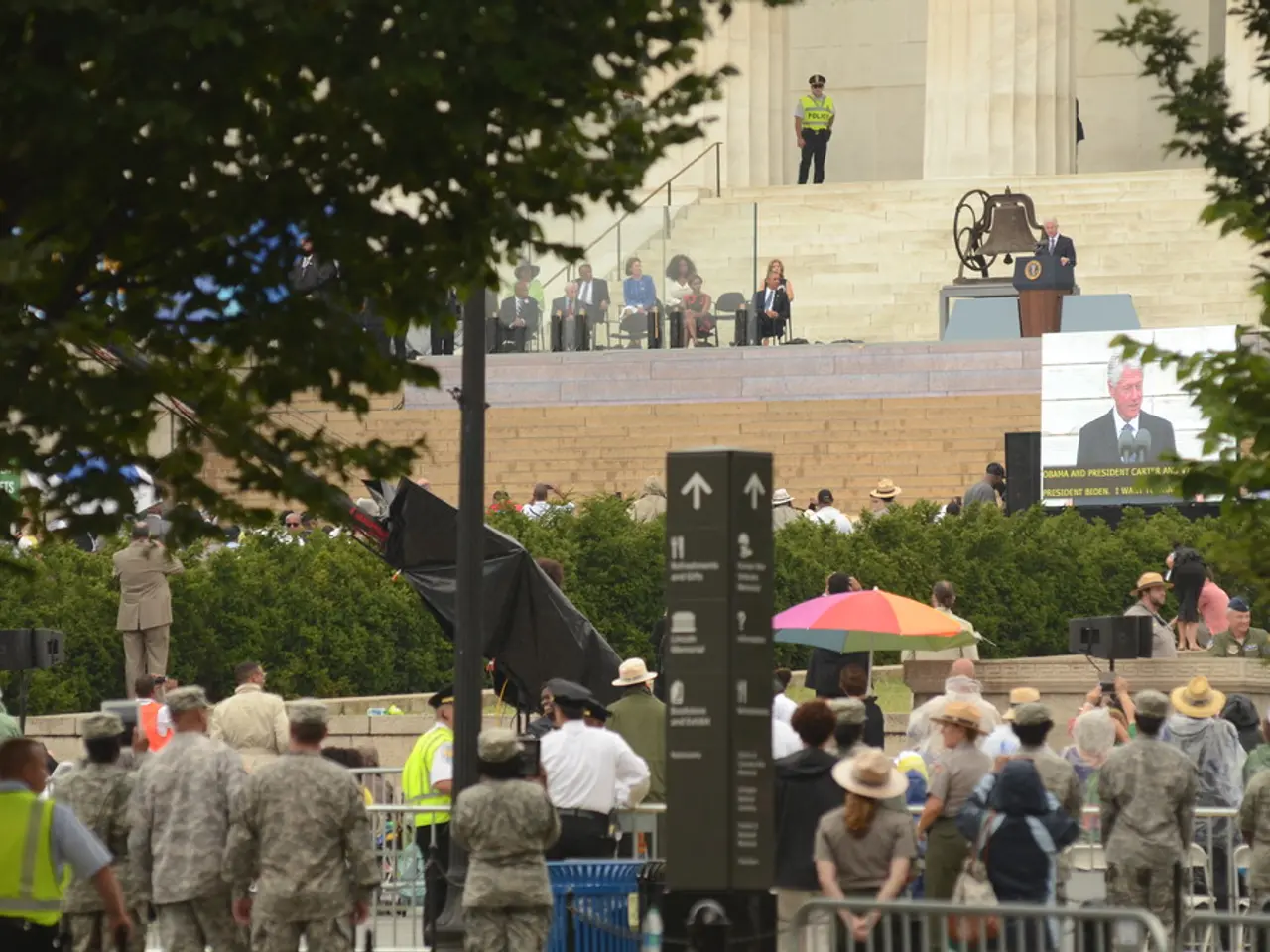Syria's President's Remarks at the Significant United Nations Address
Next week, Syria's transitional President, Ahmad Al Shara, will make history as he addresses the 80th session of the United Nations General Assembly in New York. This will be the first time a Syrian president has spoken at the Assembly in nearly six decades.
Mr. Al Shara's speech is expected to focus on three themes: creating an inclusive political order, a 'zero-problems' foreign policy, and an economic strategy to reposition Syria as a regional hub. He will begin by recalling the atrocities of the Assad regime, the suffering endured by millions, and the sacrifices made to bring that regime to an end.
On the issue of Syria's political transformation, Mr. Al Shara will outline a credible strategy to persuade the international community. He has shown willingness to pursue peace negotiations with Israel, including discussions on a new security agreement related to the 1973 withdrawal accords. This diplomatic approach could influence Syria's future.
Regarding Israel, Mr Al Shara could cite ongoing talks as proof of his commitment to peace. However, he will need to make clear that Syria cannot normalize relations while the Golan Heights remain under occupation. Partition of Syria is a red line for Mr Al Shara, and he will insist on preserving Syria's sovereignty and territorial integrity.
Economic recovery, according to Mr Al Shara, is not just about rebuilding infrastructure but about transforming Syria into a hub for digital connectivity, agricultural exports, and regional trade. He will pledge tighter border controls to curb smuggling and militant activity.
Mr. Al Shara will also acknowledge the recent outbreaks of violence in Syria. He will point to the causes of these outbreaks and underscore his government's efforts to respond and hold perpetrators accountable.
The UN General Assembly will offer Syria its first positive international spotlight in decades. Mr Al Shara's foreign policy will emphasize a 'zero-problem' approach, a departure from the confrontational and isolationist stance of the previous regime. However, the real measure of Mr. Al Shara's visit will be whether his actions at home align with his promises abroad.
Mr. Al Shara is expected to highlight progress already achieved in the transition, including restoring basic services, filling power vacuums, averting state collapse, and beginning the difficult work of building institutions grounded in competence rather than patronage.
The visit signifies Syria's tentative re-emergence after years of political isolation. Mr Al Shara is under UN sanctions and will be the first sitting head of state under UN sanctions to take the podium in person at the organization's flagship forum. Despite this, he has stated that Iran's military presence in Syria has ended and will not return.
As Syria steps back into the international arena, the world watches with hope for a new era of peace and prosperity for the war-torn nation. The UN General Assembly provides a platform for Mr. Al Shara to make his case and chart a course for Syria's future.
Read also:
- United States tariffs pose a threat to India, necessitating the recruitment of adept negotiators or strategists, similar to those who had influenced Trump's decisions.
- Weekly happenings in the German Federal Parliament (Bundestag)
- Southwest region's most popular posts, accompanied by an inquiry:
- Discussion between Putin and Trump in Alaska could potentially overshadow Ukraine's concerns




